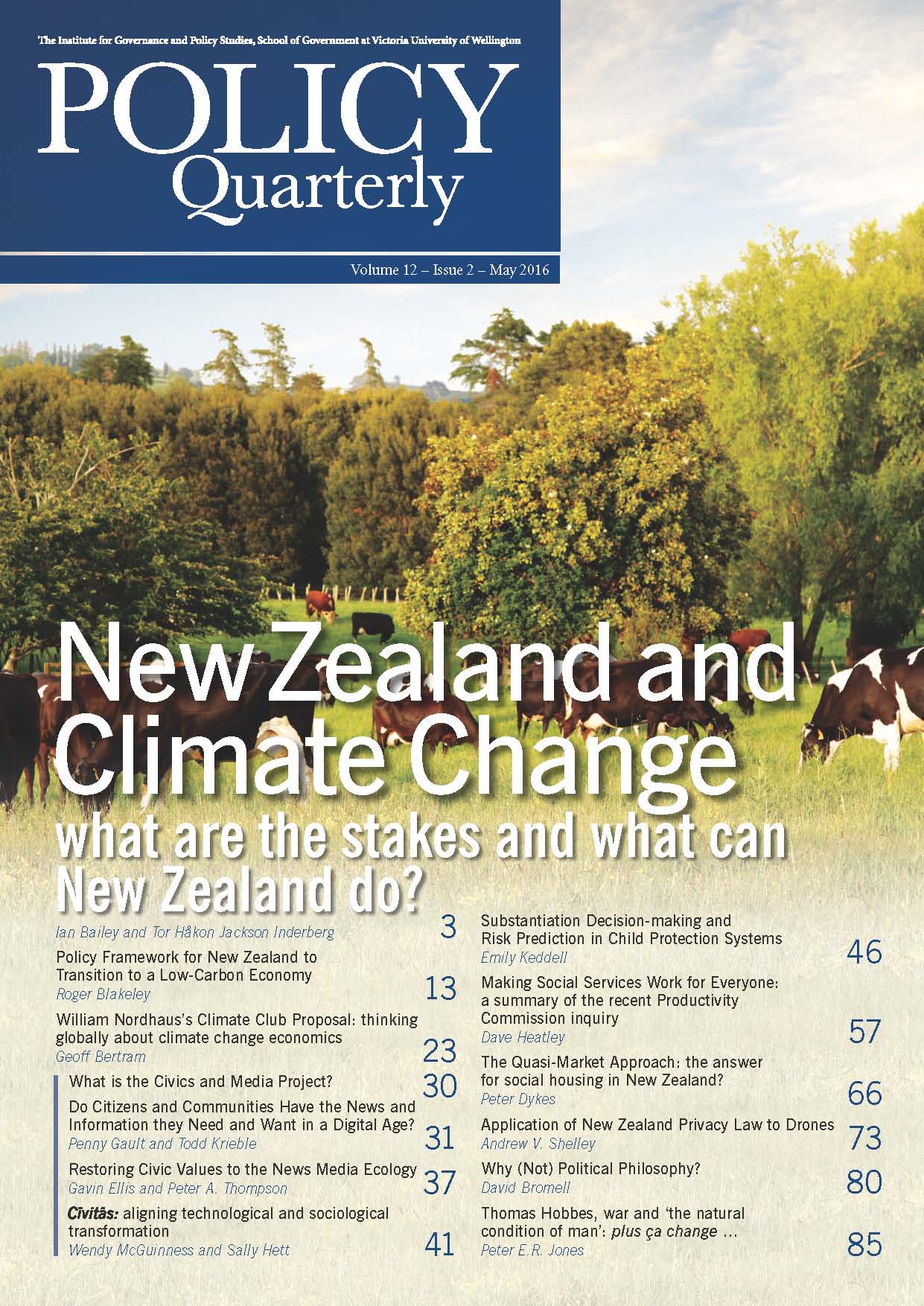New Zealand and climate change: what are the stakes and what can New Zealand do?
DOI:
https://doi.org/10.26686/pq.v12i2.4598Keywords:
Conference of the Parties (COP21), United Nations Framework Convention on Climate Change (UNFCCC), Intended Nationally Determined Contributions (INDCs), human-induced climate change, climate mitigation policies, Climate Action Tracker, Agriculture, specialised economic base, low-carbon electricity sector, adaptation costs, Pastoral Greenhouse Gas Research ConsortiumAbstract
Following the 21st Conference of the Parties (COP21) to the United Nations Framework Convention on Climate Change (UNFCCC) in December 2015, governments around the world now face the task of developing strategies to meet their Intended Nationally Determined Contributions (INDCs) – UN terminology for emissions reduction goals to 2030 – and their broader contributions to the Paris Agreement’s goal of maintaining global average temperatures to well below 2°C above pre-industrial levels (UNFCCC, 2015a, article 2.1(a)). Paris represented a crucial starting point, but the decisions by Paula Bennett, New Zealand’s new minister for climate change issues, and her international counterparts will determine whether COP21 produced just warm words or genuinely charted a course to avoid the worst impacts of human-induced climate change.
Downloads
Downloads
Published
Issue
Section
License
Permission: In the interest of promoting debate and wider dissemination, the IGPS encourages use of all or part of the articles appearing in PQ, where there is no element of commercial gain. Appropriate acknowledgement of both author and source should be made in all cases. Please direct requests for permission to reprint articles from this publication to Policy-Quarterly@vuw.ac.nz.



